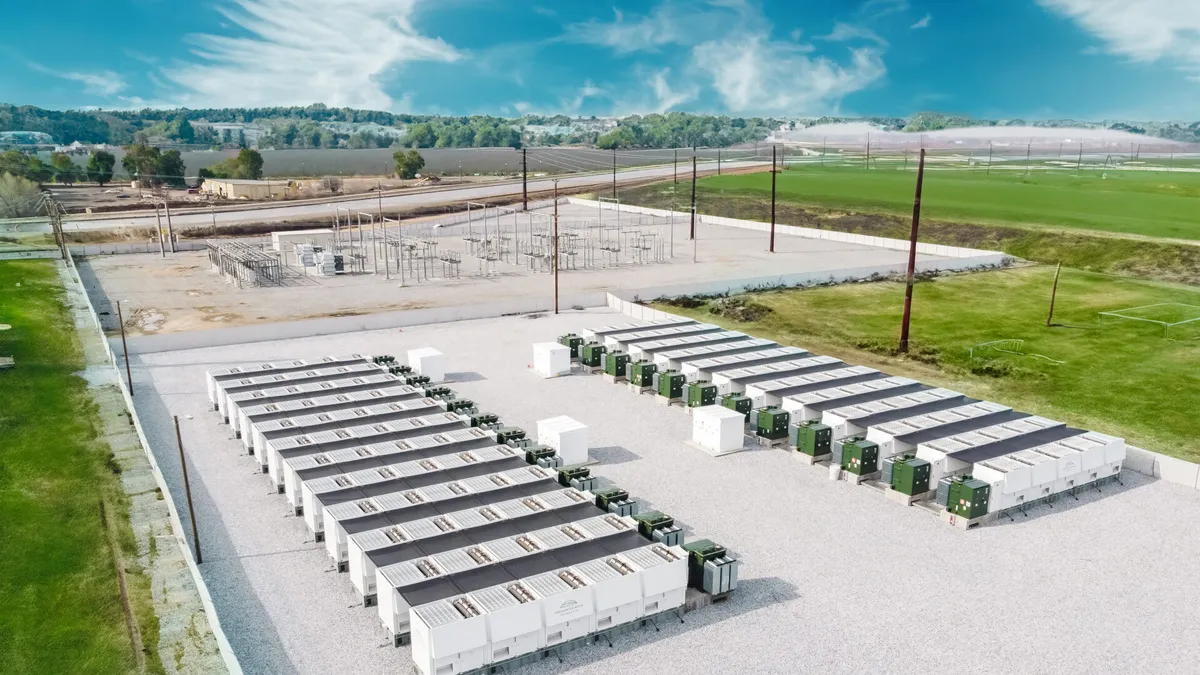Dive Brief:
- JLL reported a roughly 16% year-over-year increase in combined scope 1 and 2 emissions across the Americas last year, but stated that it has made strong progress on creating sustainable, resilient and inclusive spaces in its offices and operations, according to the firm’s 2023 ESG performance report.
- At the end of 2023, 60% of JLL offices over 10,000 square feet have been awarded a green building certification, keeping the firm on track to achieve net-zero operational carbon emissions by 2030, the firm said. Renewable energy sources accounted for over a third of electricity across JLL’s global portfolio by the end of 2023, helping to drive a 20.6% reduction in scope 1 and 2 emissions compared with its 2018 baseline.
- The firm has also increased its spend with diverse suppliers to $2.31 billion in 2023 to incorporate sustainability more broadly across its supply chain, Erin Meezan, chief sustainability officer at JLL, said in the report.
Dive Insight:
Climate action, healthy spaces and inclusive spaces are three priorities within its global sustainability framework, JLL said.
JLL’s short-term objectives include cutting scope 1, 2 and 3 carbon emissions 51% by 2030, compared with a 2018 baseline, and to occupy only net-zero carbon offices by then, with a long-term goal to achieve a reduction of around 95% in scope, 1, 2 and 3 emissions by 2040, compared with its baseline, the report noted. To meet those objectives, the company has put global governance and oversight processes focused on environmental commitments in place and established a sustainability reporting platform and a global sustainable procurement framework, as well as regular and transparent carbon emissions reporting with third-party certifications, according to the report.
JLL’s total emissions rose 27% year over year, but it reduced scope 1 fleet emissions by 3.3% and scope 2 market-based emissions by 4.2% in that time, offsetting a 40% rise in scope 1 natural gas and office fuel emissions and an increase of nearly 6.8% in location-based scope 2 emissions in 2023. The company also reduced scope 2 location-based and market-based emissions by roughly 11% and nearly 36% from its 2018 baseline, per the report.
Client emissions, accounting for more than 97% of JLL’s carbon footprint, rose 29% year over year in 2023, per the report. In 2023, the firm transitioned from a revenue-based to consumption-based methodology, which matches floor area with available consumption data, or estimations based on property type and floor area using established industry benchmarks for property types, JLL said. The firm said this shift will enable it to track the impact of decarbonization efforts more effectively.
ESG has emerged as a key differentiator for JLL, as its clients look to provide spaces that support their low-carbon goals and meet employees’ expectations for sustainable practices. Meezan said JLL “encourages collective action in the buildings we manage for clients that align with our net-zero objectives,” with a growing number of clients facing significant decarbonization commitments and “driving the demand for sustainable office space, which today outpaces supply by a factor of 3-to-1.”
The firm also joined the Science Based Targets Network Corporate Engagement program in early 2023 to help preserve nature and biodiversity across its corporate real estate portfolio, per the report.















